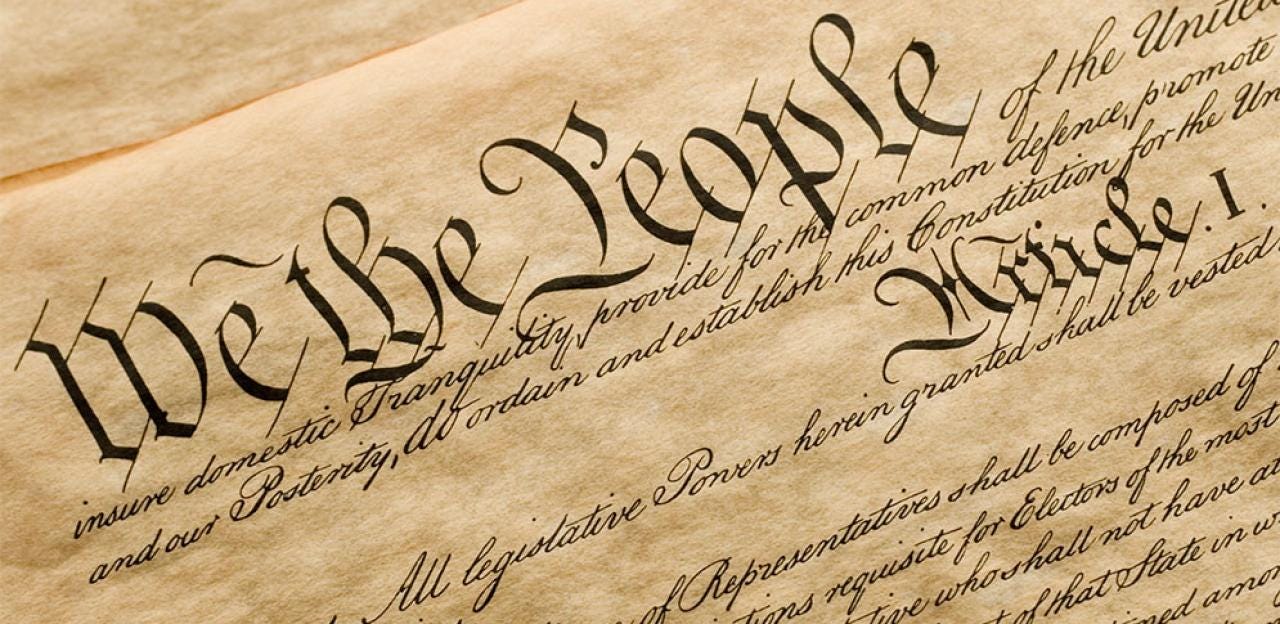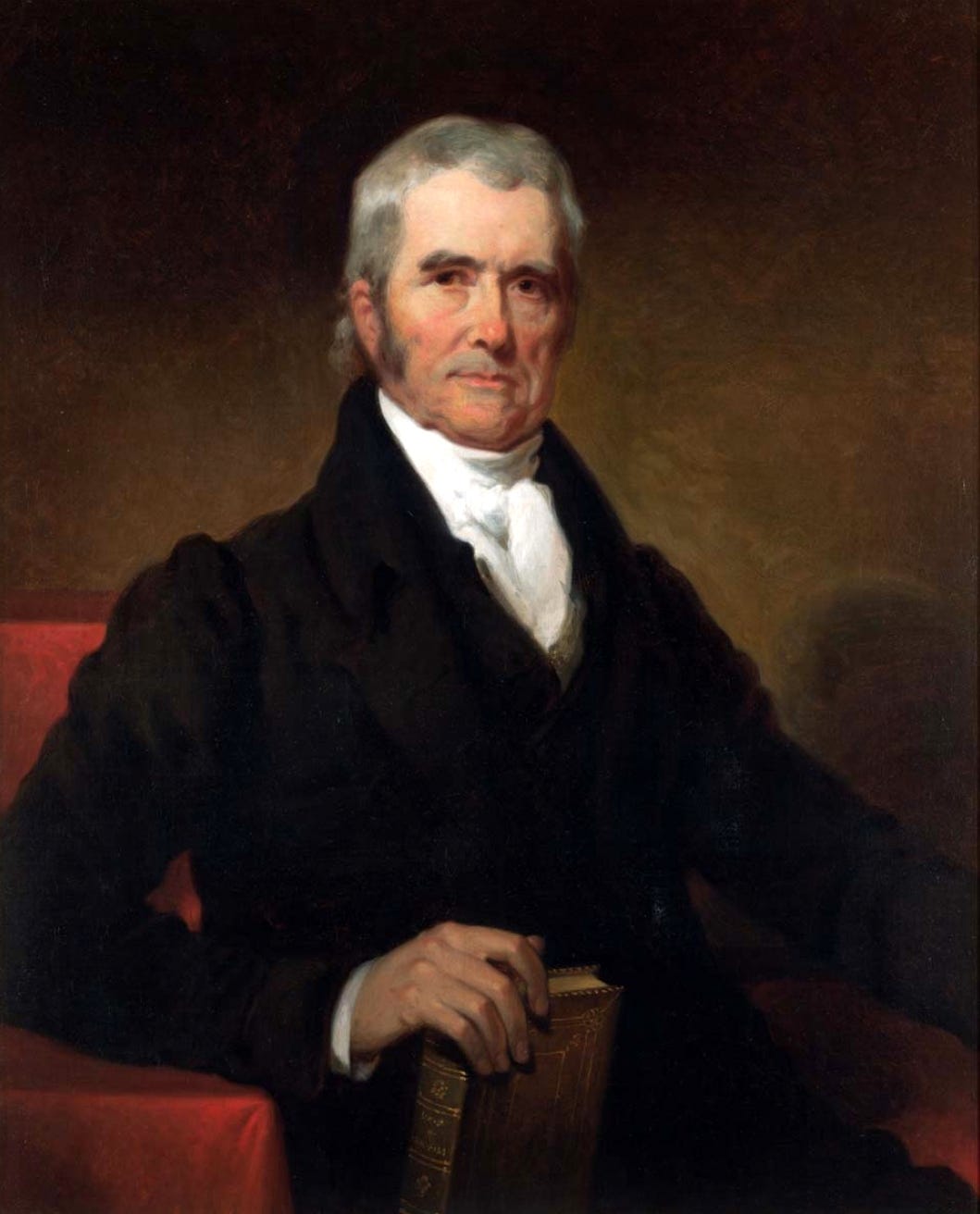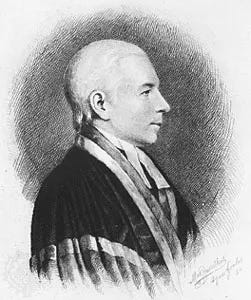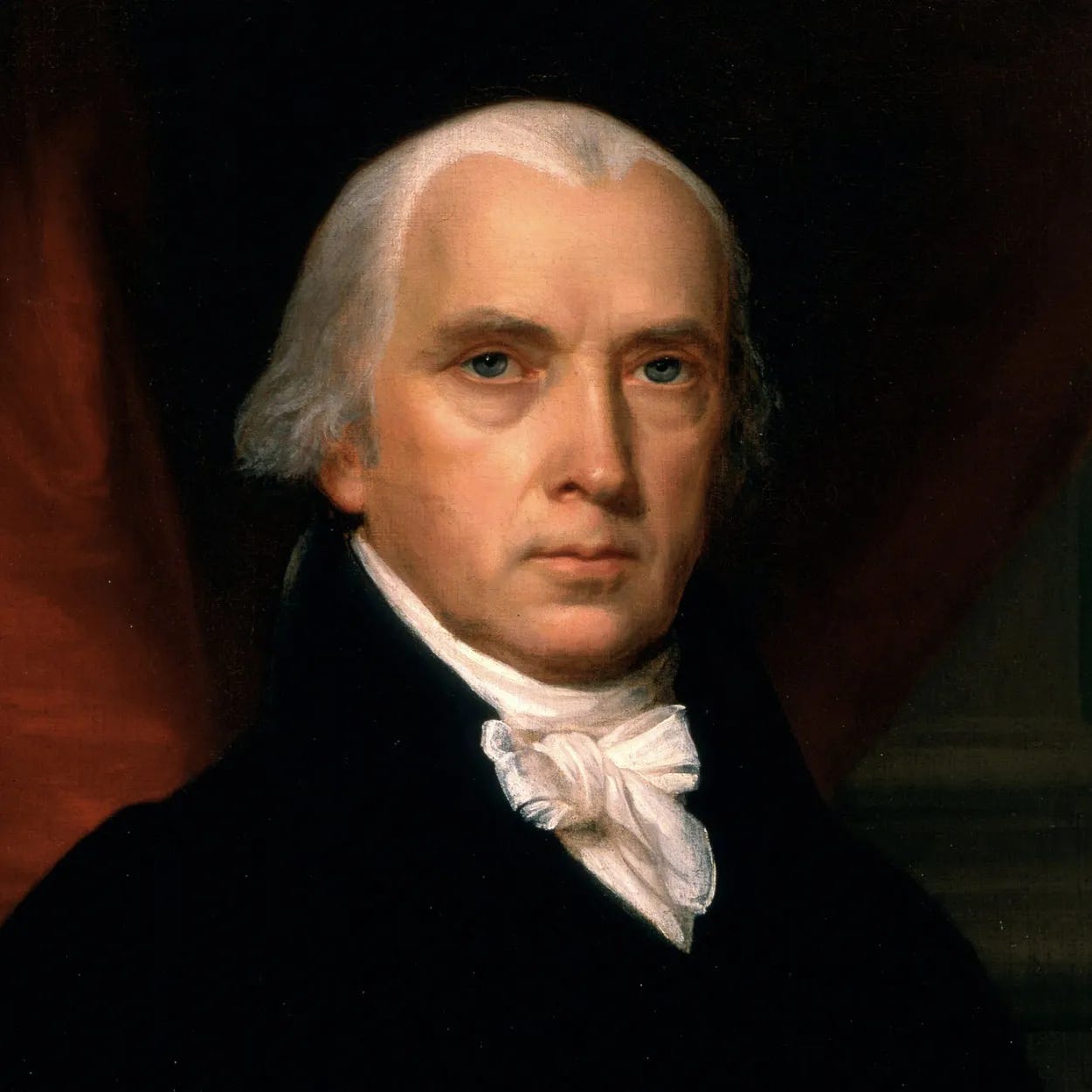Another Attack on Originalism Falls Short
Stanford Professor Jonathan Gienapp provides a thorough description of modern constitutional debate and the state of constitutional law at the founding but fails to prove that originalism is faulty.
A supposedly new critique of originalism has been published. You might not have heard of it, but it has been universally praised by progressives in academia and the media as a game changer. The Washington Post and The New Republic published glowing reviews, and academic giant Erwin Chemerinsky proclaimed that “Gienapp offers a new and devastating critique of originalism.” Cass Sunstein declared that the “book comes as a thunderclap.”
The book, Against Constitutional Originalism: A Historical Critique, posits that originalism fails because it makes three faulty assumptions:
That the Constitution only contains the written text of the document;
That the Constitution’s meaning is fixed; and
That the Constitution is to be interpreted the same way all law is.
However, this critique suffers from a failure to recognize what the rule of law requires. If his goal was to blow up certain historical assumptions made by many originalists, he has succeeded. If his goal was to blow up originalism, as the title suggests, he has failed. Contrary to Gienapp’s premise, originalism’s strongest argument is not that the Founders were originalists in the same way as those of modernity. Rather, it’s a common sense understanding of the rule of law.
Gienapp anticipates some of the responses I have laid down here but does little to grapple with them. Instead, he merely identifies them and dismisses them as watering down originalism to nothing, or he retreats to his conclusion that originalists are wrong about what the original Constitution was. Gienapp conflates intent with meaning without knowing it. He argues that you cannot separate the Founders’ conception of constitutionalism from the Constitution's original meaning. But that just isn’t true. Words have meanings. Those meanings might depend on certain constitutional contemporary understandings, but the words are still what matter.
That the Constitution Only Contains the Written Text of the Document
Although this statement is technically correct, it is misleading. Modern originalists posit that the written text comes before all else. But, obviously, fully interpreting what exactly a constitutional provision means in all situations often requires a lot of work. Thus, we look to other sources to illuminate the original meaning, including the common law and contemporary usage of the text’s words, among other things. And some provisions leave quite a bit to interpretation. Because of how narrowly Gienapp defines “orthodox originalism,” there is more agreement on this issue than it might seem at first blush. But his overall theory that the Constitution did not primarily speak through its text is wrong. Gienapp argues that the nation didn’t adopt a text but a constitution, which he states is an entirely different animal.
Gienapp first talks about how much work it takes to get to the original meaning, that we have to understand how the Framers thought. But that is not an attack on originalism; it is just a statement that getting to the right answer can be difficult and that originalists often don’t spend enough time getting to understand the true meaning of the text. In other words, Gienapp’s argument here is confused. Just because you have to understand what people at the time thought of a concept such as “liberty,” which Gienapp harps on frequently, doesn’t mean the Constitution contains more than the written text. Thus, Gienapp mistakenly blames originalism for the arguable failure of originalists to do enough work on original meaning. This marks Gienapp’s first example of throwing the baby out with the bathwater.
Gienapp’s allies act as if he has stumbled upon a great rebuttal to originalism: “[The Constitution] declared the rights that the people already had.” Of course. Most originalists like me believe that too. This is made plain by the language of the First, Second, and Ninth Amendments. Only originalists of my ilk believe that those rights must have been established at the time those amendments were ratified. Many non-originalists believe that rights can be created over time by judges simply by looking to evolving standards of society or, like in the case of abortion, the evolving standards of judges. The real separation between Gienapp and originalists like me is the belief that these preexisting rights must be tied to text to be recognized.
It may be true that there is a sort of informal, unwritten constitution regarding the norms of our society and what we choose to treat as acceptable. But that is something entirely different than the Constitution.
It may also be true that many 18th-century Americans considered natural or common law just as important as positive law. However, allowing unwritten law to override written law betrays the rule of law itself, irrespective of what Professor Gienapp believes any particular person thought of the Constitution at any given time. The American Constitution marked an advancement in constitutional law. In the words of Chief Justice John Marshall, the written constitution was the “greatest improvement on political institutions.” By doing so, the Framers, whether they knew it or not, eliminated the traditional blending of natural and positive law that Gienapp discusses. Written constitutions were not much of a thing before the American founding. The old way of enforcing the unwritten British constitution could not be applied to the written American Constitution.
Gienapp seems to brush this aside, arguing that originalists have failed to prove that the Framers felt this way. But originalism is not dependent on intentions. It follows logically that writing things down is the only sure way to set down clear law.
A 1795 circuit court opinion by Justice William Paterson, which Gienapp quotes from, exemplifies this reality. Justice Paterson argued that in England, where there was no written constitution, there was “nothing visible, nothing real, nothing certain.” But in “America, the case is widely different:” constitutions are “reduced to written exactitude and precision.” Paterson asserted: “It is difficult to say, what the constitution of England is; because, not being reduced to written certainty and precision, it lies entirely at the mercy of the parliament: it bends to every governmental exigency; it varies and is blown about by every breeze of legislative humor or political caprice.”
One cannot argue that it makes sense to have unwritten law, and Gienapp doesn’t earnestly attempt to (at least not directly). Instead, he focuses on the history of constitutionalist thought. And he would be correct that his argument undermines an argument made by many originalists that the Framers nearly unanimously believed there was nothing beyond the written Constitution. But that doesn’t defeat originalism itself, certainly not my form of original meaning originalism.
It is not inconsistent with originalism to argue that unwritten constitutionalism played a necessary role in early American constitutionalism but rightly disintegrated as written constitutionalism eliminated the rationale for such a system. In fact, as Professor Gienapp concedes, many constitutionalists, including jurist James Iredell and revolutionary patriot Thomas Paine, in the immediate aftermath of the constitutional convention, expressed their view that the Constitution comprised only of written text.[1] Iredell stated the Constitution was not "a mere imaginary thing, about which ten thousand different opinions may be formed, but . . . a written document to which all may have recourse."[2] Likewise, Paine proclaimed that a constitution was “a real existence; and wherever it cannot be produced in a visible form, there is none." It was, he insisted, "the body of elements, to which you can refer, and quote article by article.” This sentiment only increased in the following years.
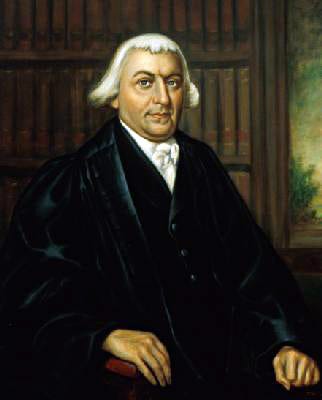
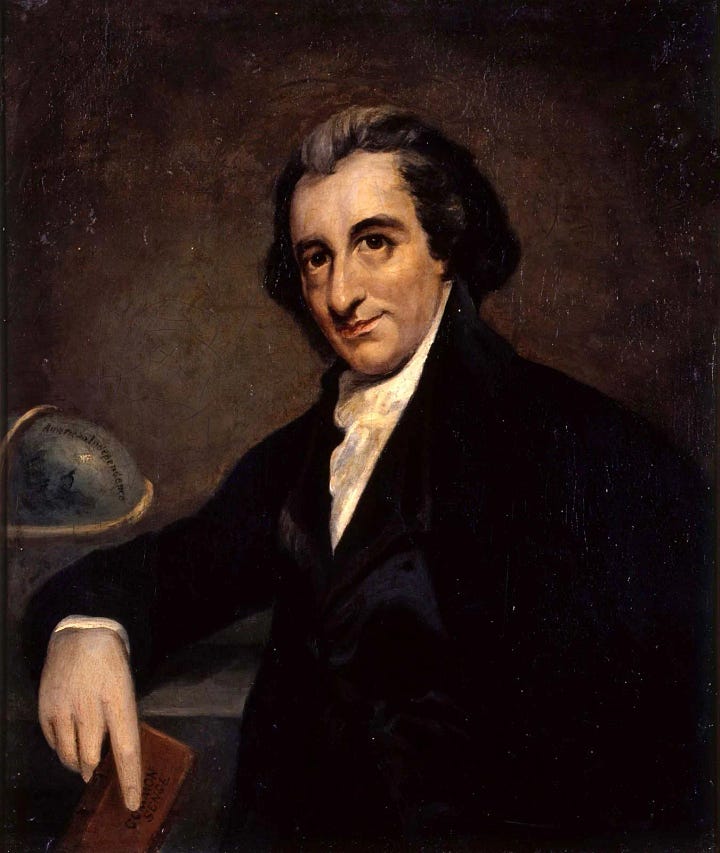
Furthermore, many early American constitutionalists believed that whether natural or common law was a part of the Constitution or not, judges had no business enforcing those not clearly tied to the text, something Gienapp also seemingly concedes.[3]
An originalist reading of the Ninth Amendment could also protect unenumerated natural or common law rights. And at that point, what other unwritten fundamental law could legitimately be included? Once you recognize that fact, this argument about unwritten constitutionalism becomes much less impactful. Thus, even if you do believe that unwritten fundamental law made up part of the Constitution, you are not losing any of the Framers’ intent under my form of originalism. Unfortunately, most originalists and non-originalists alike have ignored this provision, refusing to grapple with its implications. Nonetheless, I argue we can only consider such unwritten rights because they can be traced back to the text. We cannot allow the common law or natural law to trump written law. On the other hand, it is not inconsistent with originalism to use the common law as an evidentiary tool to help clear up original meaning and even shed light on unenumerated rights.
Untethering law from the text is a dangerous undertaking. Gienapp seems to think we can trust judges to determine what unwritten provisions of the Constitution exist, the same ones that, before the reemergence of originalism and textualism, were just making stuff up. This gets to my broader point about the rule of law. Written words are the only way we can for sure establish what the law is. There, we can appeal to the common law formed over centuries before we had a modern system of codified laws. But as already alluded to, the clock doesn’t keep running after ratification. One cannot look to modern practice to determine the meaning of a constitutional provision adopted in 1791 or 1868.
That the Constitution’s Meaning Is Fixed
A common-sense view of the rule of law requires fixed meanings. The Constitution is no different. In the words of Justice Paterson, “The [C]onstitution is certain and fixed.”
As Professor Saikrishna Prakash has explained, originalism is the “Default Rule” in construing communications. It’s the assumption we make in our everyday life—you expect what you write and say to be interpreted based on the original meaning of those words. Imagine saying something only to have what you said twisted to mean something different years later. The terms written in our statutes and Constitution are not different in this regard. Why write down words if their meaning at that time of adoption does not bind us? As Prakash explains, otherwise, lawmakers would be codifying words but not their meanings.
Gienapp argues that the written Constitution was nothing more than a document meant to structure political debate.[4] But if fundamental law can be changed through the evolution of common law and people's attitudes, why have any fundamental law at all? Just put it up for a vote in the legislature.
Indeed, Gienapp at times flirts with the idea that the text doesn’t really determine anything, stating that the power of the federal government was determined by the “nature of the United States,” not the text of the Constitution, dismissing the idea that the commerce clause limited the national government.[5]
Many point to a couple of statements made by James Madison in support of the argument that the Constitution’s meaning is not fixed. First, from Federalist 37: “All new laws, though penned with the greatest technical skill, and passed on the fullest and most mature deliberation, are considered as more or less obscure and equivocal, until their meaning be liquidated and ascertained by a series of discussions and adjudications.” And second, from a letter he wrote in 1819, stating that “it might require a regular course of practice to liquidate and settle the meaning of some” terms.
Those “discussions and adjudications” should be about discerning the original meaning. Accordingly, Madison’s statements here are not necessarily inconsistent with originalism. Madison’s point appears to be that ambiguity must be sifted out by grappling and debating what the text meant. When Madison eventually conceded the constitutionality of the national bank after arguing the contrary for many years, he wasn’t endorsing living constitutionalism; he was saying that his view lost the debate. He believed that deliberate and continued precedents of courts and legislatures could, in a practical sense, answer a question of constitutionality, triumphing over any single person’s, including his own, view on the matter.
You can’t find any Framer saying the text’s meaning itself changes. Instead, you will only find disagreements on what the terms have always meant. That is why, as Gienapp concedes, you will find quote after quote of early American constitutionalists going back to the convention and ratification debates to help determine the Constitution’s meaning.
Regardless, even if Mr. Madison had argued for a living constitution (he didn’t), it would not change the ultimate necessity of originalism. As already stated, originalism is just following the law as written. Deviation from originalism is deviation from the rule of law. As also already noted, the Constitution marked an advancement in the law that cannot be discredited by pointing to the fact that a framer or many framers had different views of constitutionalism.
Gienapp’s best attack on this issue is through the argument that when the Constitution set out rights like the right to bear arms or freedom of speech, those rights were meant to be living rights regulated by the people’s representatives.[6] The problem with this theory is that it essentially leaves those amendments meaningless and once again flouts the rule of law. The words would essentially mean nothing. The proper response to this is to interpret these rights based on the original meaning of those rights, which can be applied logically to modern times. To do otherwise would mean there was no right at all. You might as well let the politicians do what they want. Why even have fundamental law at all?
It is also unclear from the history he provides that the meanings of these rights could change with time, especially given the natural law framework that so many 18th-century Americans followed. To be clear, I agree with Gienapp that Bruen's history and tradition framework was wrong (I said as much in an article published in DC Journal). Originalism does not mean these rights are frozen in amber. The people’s representatives are free to regulate these rights within the original conception of these rights, and that doesn’t mean there needs to be a history or practice of a restriction for that restriction to be constitutional.
That the Constitution Is to Be Interpreted as a Species of Conventional Law
You either have the rule of law, or you don’t. If the Constitution is law, and it is, then interpreting its provisions based on the original meaning of those words is the only option. A constitution may provide general or broad language, but that doesn’t change the proper interpretive methodology.
The argument that the Constitution must be interpreted differently makes sense until you actually think what it would mean to deviate from the original meaning. The Constitution would be worthless if the words’ meanings were not fixed. What would be the point of having a written constitution?
Thus, the basics of constitutional and statutory interpretation are the same, with a few caveats. The most significant being that statutes can be declared unconstitutional.
The original meaning can be applied to changing circumstances and does not lock us into the 18th century. Much of the Constitution’s language allows it to adapt to the times. The First Amendment does not only protect physical newspapers, and the Second Amendment doesn’t just protect muskets. Even most originalists who subscribe to traditionalism don’t suggest otherwise.
At one point, Gienapp makes an argument resting on the absurd position that we don’t read old materials as an originalist. Well, then, there would be no point in reading anything old. He bizarrely states that we don’t read texts like The Prince, Hamlet, or The Federalist for original meaning. Instead, we might read them for what they “meant across time, how they speak to contemporary problems in political theory or law, or how they fit into literary or philosophical traditions.”[7] Confused? You are not alone. I have never once read the words of a source for what they “meant across time.” Words mean something when they are written down. Anything else is basically irrelevant.
Again, you must do your best to take the words for what they meant when they were written. There may be gaps in our understandings of Plato’s Republic or even Shakespeare, but that doesn’t mean we just give up and instead read these materials for their literary technique. This is perhaps Gienapp’s weakest argument. If you follow this logic to completion, the Constitution’s words mean absolutely nothing today.
Gienapp also points to the lack of consensus on how to approach the Constitution, but that is no reason to reject originalism. If the Constitution was unprecedented, as Gienapp uncontroversially asserts,[8] how does it follow that we should reject originalism, the most logical form of constitutional interpretation? Gienapp successfully proves that some originalists are too confident about the history of interpretive methods, but he does not make a sound argument against originalism itself.
***
I recommend every originalist read Gienapp’s book, as it may provide the strongest argument against originalism yet: that many 18th-century Americans had a different conception of constitutionalism. Actually, I would recommend Gienapp’s book just for the history alone before even getting to the law. Originalists should take note and grapple with his arguments to fine-tune their own. However, the work still falls short of its stated proposition. First, although Gienapp provides new ammunition against originalism, the core of Gienapp’s argument, that originalism makes three false assumptions, is nothing new. Second, although his telling of history is valuable, nothing in it should lead the reader to conclude that originalism is bunk, as he suggests. Gienapp’s theory of constitutionalism makes fundamental law almost pointless and abandons the rule of law. All law, including constitutional law, must be tied to the text.
[1] P. 119.
[2] See Gordon S. Wood, Empire of Liberty: A History of the Early Republic, 1789–1815, at 445 (2009) (internal quotation marks omitted) (quoting Letter from James Iredell to Richard Spaight (Aug. 26, 1787)).
[3] See pp.107–08.
[4] P. 256.
[5] P. 221.
[6] P. 217.
[7] P. 54
[8] E.g., 169.





